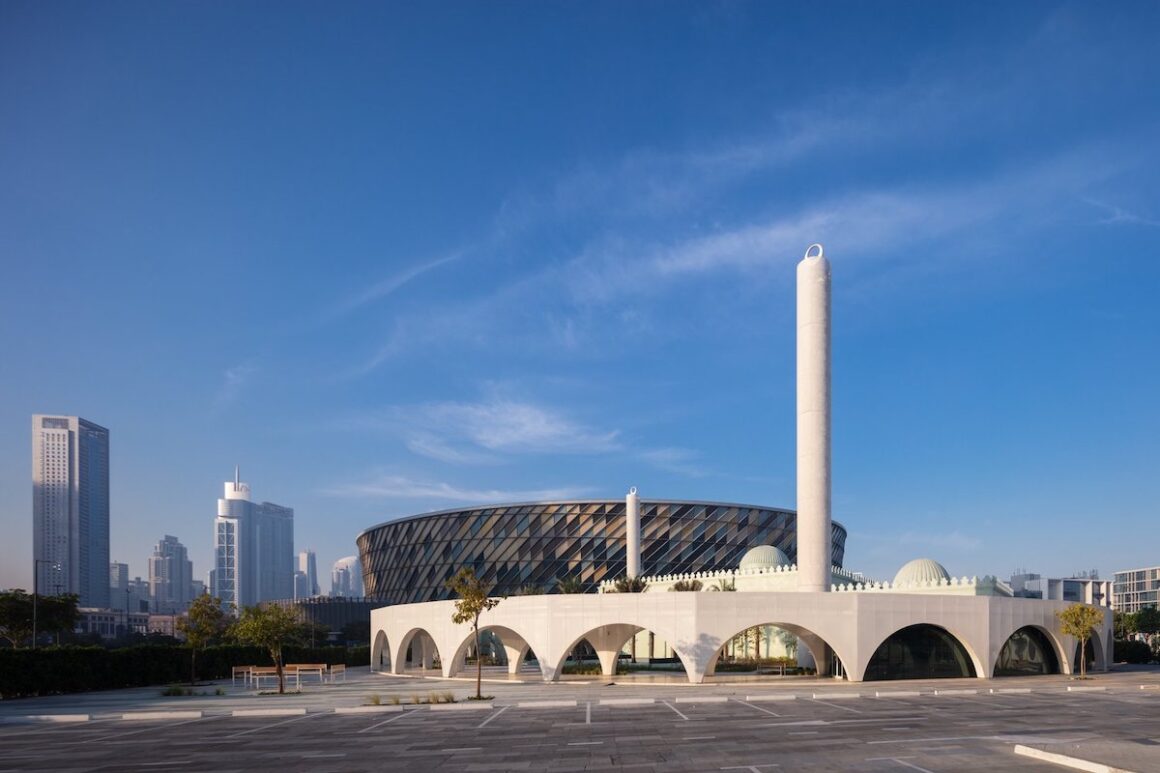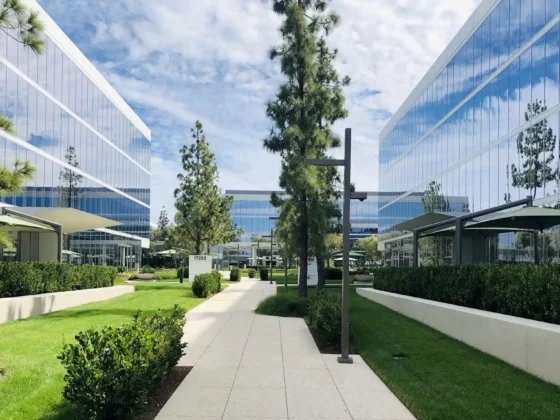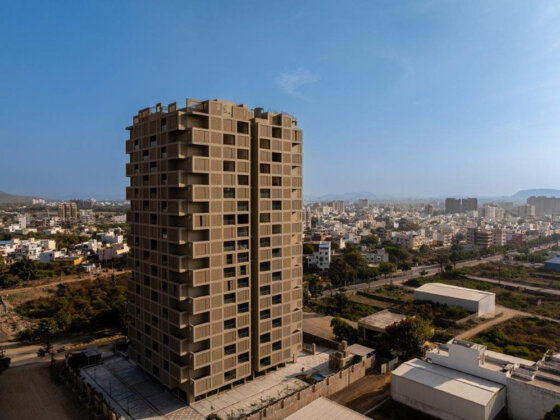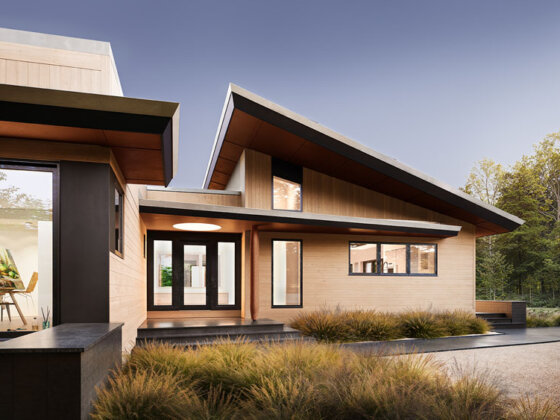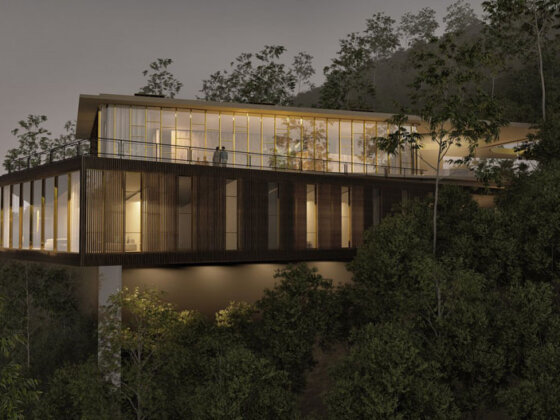Tokyo, Japan
Tokyo and Dubai-based architectural practice Waiwai and Kazuma Yamao wrap a peripheral colonnade area of a mosque in Dubai, creating a perforated arcade that serves as a transitional space between the urban space and a sacred place.
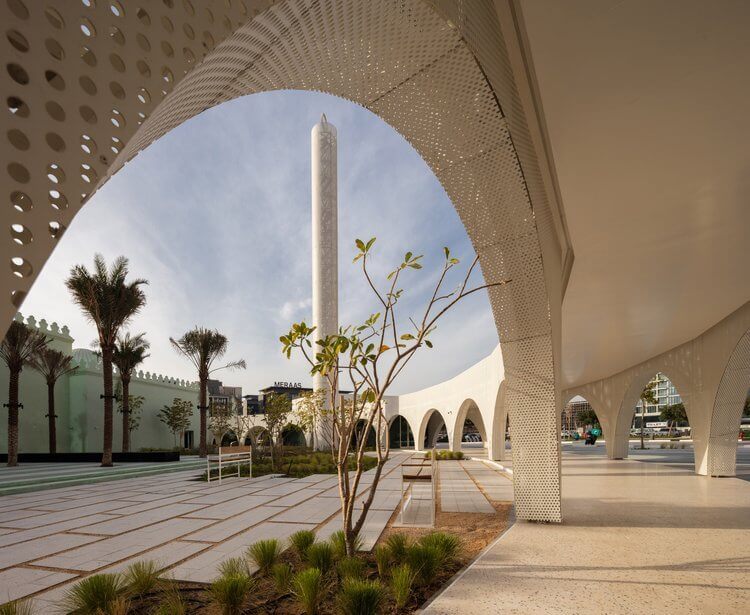
Drawing reference from the traditional Arabian mosque typology where there is a communal element, the mosque reframes the spaces to encourage community use alongside its purpose as a sacred space of worship.
According to Waiwai, the mosque reframes the spaces to encourage community use alongside its purpose as a sacred space of worship.
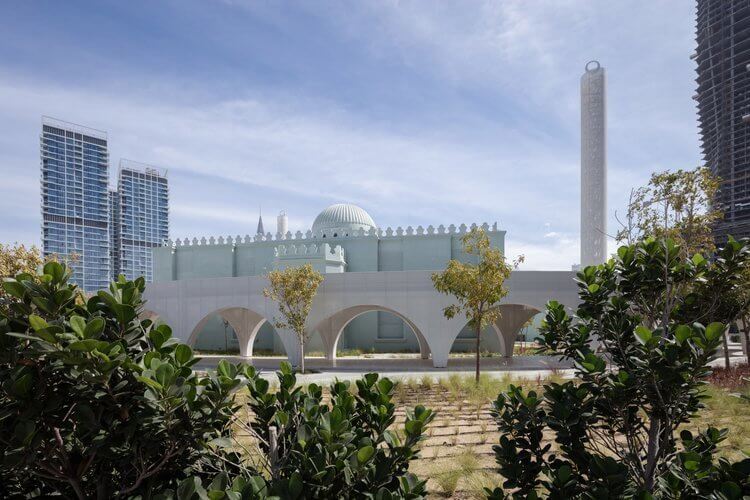
Situated within Dubai’s dense city landscape adjacent to the Coca-Cola Arena, the Mosque of Reflection is a stark contrast to its surroundings, standing as the physical embodiment of spirituality, tranquillity, and community.
The shell of the existing mosque has been retained with the façade painted in a reflective glossy pastel green and the spatial arrangement of the prayer spaces has been preserved.
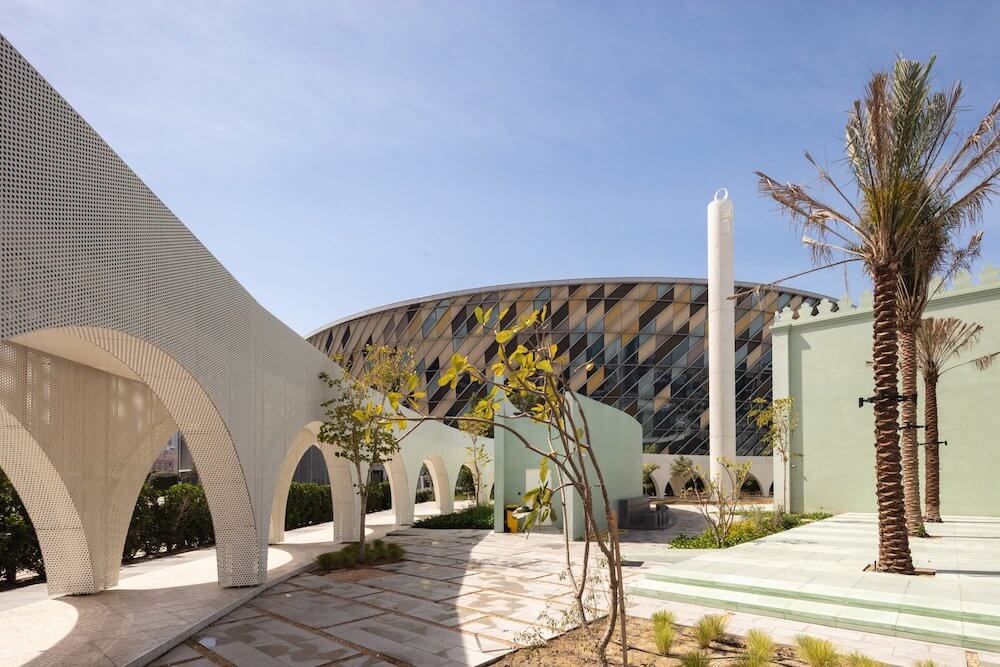
A significant addition to the refurbishment is the colonnaded arcade, or riwaq.
A series of wide arches form the riwaq, inviting people and worshipers from all directions. A new public space is established within the sahn or courtyard.
Palm trees, rectilinear water features leading to the main entrance and seating nurture an environment of tranquillity.
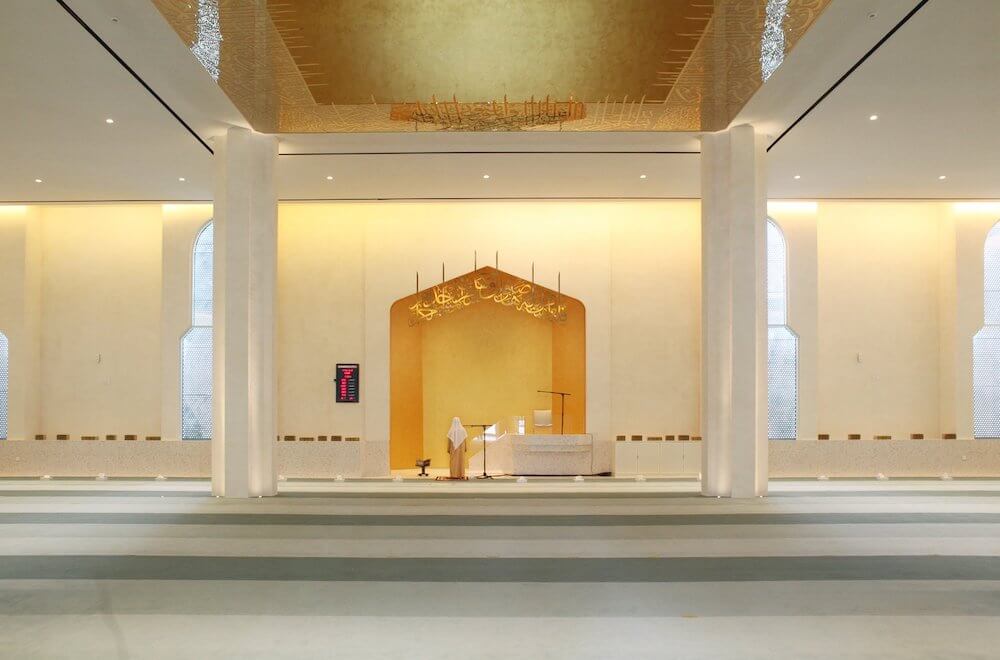
The sahn is a spatial metaphor to where community, faith and the city connect and intertwine. At the entrance before the main prayer hall or haram, which is simplistic and minimal, is a transitory space between external and internal.
Calligraphy with ayahs from the Quran span above the mihrab, which indicates the direction of Mecca of prayer and is where the imam prays, along the centre of ceiling.
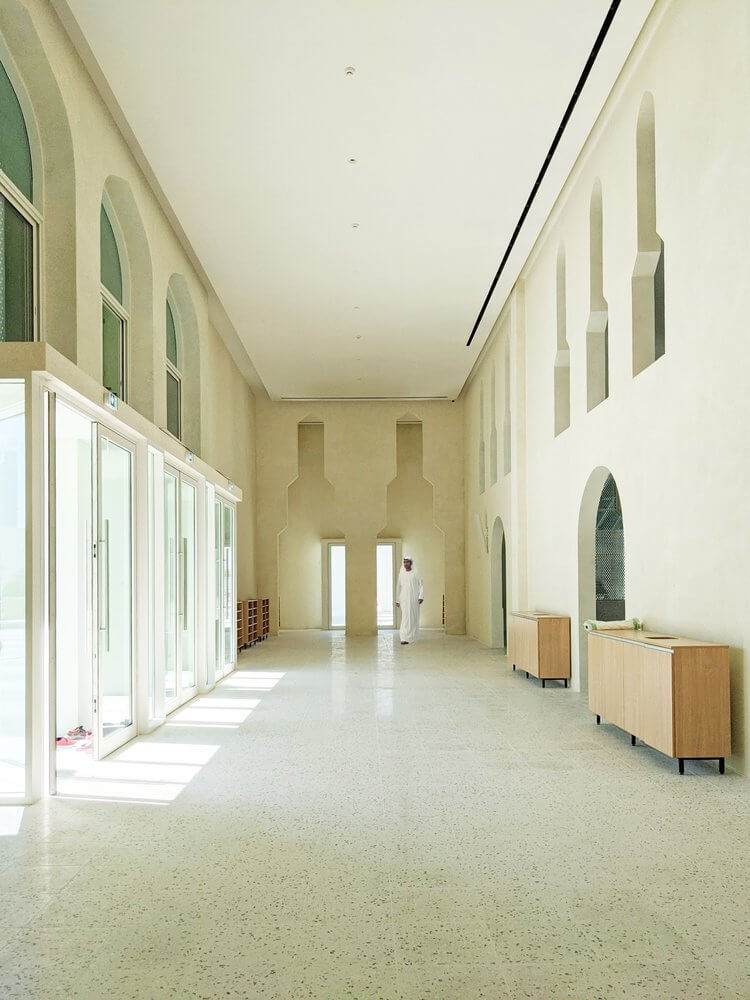
The Mosque of Reflection offers an environment where the religion and wider community can coexist as well as an experience not only for worshippers but the city as well.
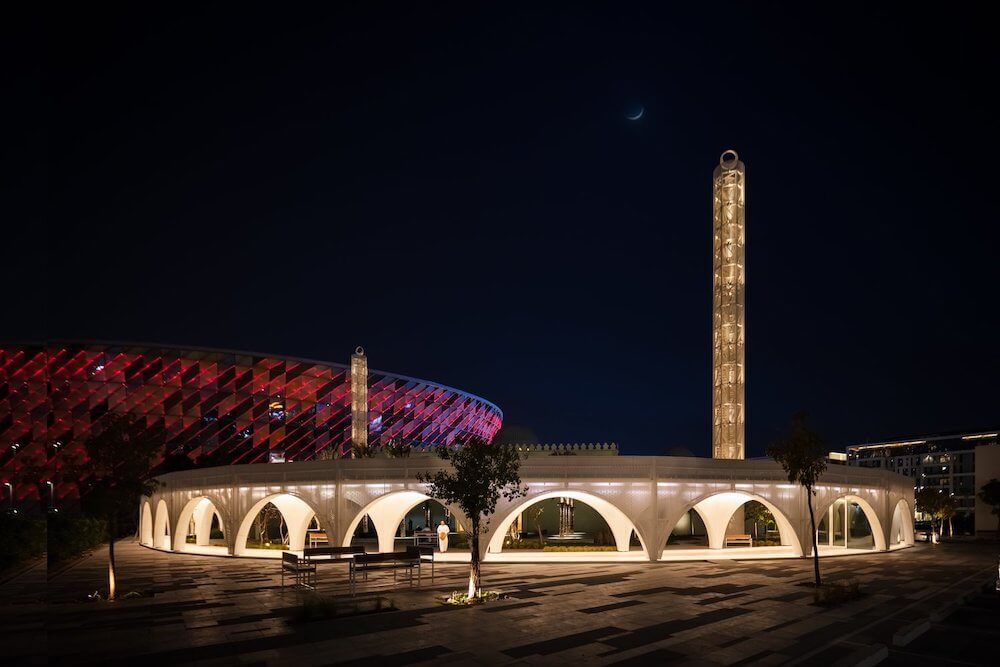
Project: Mosque of Reflection
Architects: Waiwai
Lead Architects: Wael Al Awar and Kazuma Yamao
Landscape Architects: Waiwai
Design Team: Sho Ikeya, Takeshi Harikai, and Ryuji Kamon

